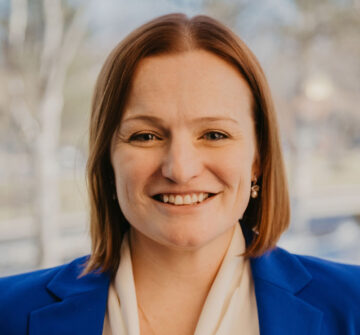
It is essential that our life sciences ecosystem values and embraces a diverse workforce. It is not only about equal representation, it is about the strong business case, the bottom line, and ensuring the next big breakthroughs to save lives and improve patient outcomes. That’s why here in Massachusetts, we know that the strongest life sciences sector is a diverse one.
The MLSC is proud to partner with the United Negro College Fund (UNCF) on the Ernest E. Just Life Sciences Initiative, which creates internship opportunities in the Boston-area for students enrolled in Historically Black Colleges and Universities (HBCUs) and other Minority Serving Institutions (MSIs). Students gain valuable experience and a network of professionals to pave a path for a fulfilling career in the life sciences.
UNCF will help provide transportation, housing, and other vital wrap around services to ensure students have a welcoming, memorable, and rewarding time in Boston.
Host organizations that meet the eligibility criteria for the MLSC’s Internship Challenge can seek reimbursement from the MLSC for wages paid to their intern(s).


Click the button below to view guidelines and to submit an application to apply.
Since its inception in 2022, the program has created 68 internships across 14 different life sciences companies and research institutions throughout Greater Boston. The initiative provided students from around the country with an extraordinary opportunity to spend the summer living with a cohort in Boston and interning with life sciences organizations of all sizes.
To date, the MLSC has contributed $200,000 to support program implementation and sponsored 16% of internships through the MLSC’s Internship Challenge.






Olaris is a precision diagnostics company that is on a mission to revolutionize how diseases are diagnosed and treated. By leveraging their CEREBRO platform (Comprehensive Early Responsive Evaluation of Biomarkers Related to Outcomes), which combines metabolomics and machine learning, they are able to harness the power of the body’s own communication system to discover and develop their pipeline of myOLARIS precision diagnostics.
